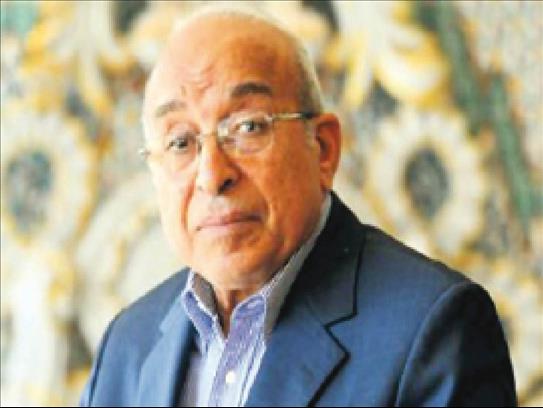
Mystery of Russia's sudden withdrawal
Two things have preoccupied the global media during the last week and both of them were related to this region. The first was the sudden pullout of Russian forces from Syria and the second was the launch of the Kurdish federation system in the border area adjacent to Turkey.
Both news items were surprising to all. Much analysis and many comments have been made. People are still trying to determine their possible impacts on the new political and geographic maps being outlined for the region. There is also still no agreement regarding the reasons behind the sudden partial withdrawal of the Russian forces although analysts had agreed on why they originally intervened.
The only thing that all analysts have agreed on is that the step taken by Russian President Vladimir Putin has assured his position as major player in the international arena and the Middle East in particular as well as showing that the fate of Syria (the Arab’s heartbeat) is at the mercy of Russia which now has a strong foothold in Syria (a naval base in Tartus and an air base in Hemohim).
We understood Russian’s motives for intervening in Syria principally for the protection of Assad’s regime- not to fight Da’esh (ISIS) as had been announced. Also Moscow was reacting to Western’s sanctions following its adventure in Ukraine.
Most of the analysts suggested possibilities for the withdrawal including the success of an agreement made between the US and Russia to reach a political solution in Syria. The second possibility is that Russia’s pressure on Assad made him accept the idea of a federation system which he previously refused instead calling for a parliamentary election in April.
The third possibility links the decision and the economic crisis facing Russia due to the oil price decline and according reduction in its military budget as the war in Syria is costly- estimated to be using up three million dollars per day.
The fourth reason may be that President Putin is worried about Obama’s decision to deploy fighting forces permanently along the borders of Baltic States and East European countries adjacent to Russia.
The reality will be revealed within the coming few weeks but the major impact of this is that Arab countries have lost control over their own fates. It is not correct to say that the Arab power moved from water countries to oil states as some have claimed but rather it has moved out of the Arab countries.
Some parties in the region welcomed the withdrawal of Russian forces while some others were worried by the decision. Of course Turkey is the first of those welcoming it followed by Saudi Arabia and Jordon and IS and Iran were among those who were less welcoming.
Turkey was not comfortable with Russia’s presence because it restricted their movements and caused tension between Ankara and Moscow especially when Turkey shot down a Russian Sukhoi fighter plane. Also Russian presence prevented Turkey from establishing a safe haven at border areas inside Syria.
Saudi Arabia was also happy with the withdrawal because Russia’s presence during past five months has weakened hopes of overthrowing Bashar. Their presence also hindered the advancement of Syrian opposition forces backed by Riyadh.
Iran also took a sigh of relief because Russia was competing with it for Syrian territory and set limits for Hezbollah. Iran was also uncomfortable with the coordination between Israel and Russia.
For Jordon the presence and bombardments on its northern border was a headache particularly for Amman which was worried the war would reach its border. So the problem was solved by the withdrawal move.
For sure IS also welcomed the move because Russian raids reduced their influence and ambitions. They were forced to step back to the southern part of Syria.
Three players were worried. The first was the Syrian regime who lost one of its key supporters. Russia’s presence had brought new hope for the survival and stability of the regime. The second was Israel which felt comfortable with the presence of Russia because it prevented the growing influence of Iran and Hezbollah in Syria. The Israeli President Reuven Rivlin met Putin in Moscow to arrange the situation on the ground after the withdrawal from Syria.
The third player not happy with the withdrawal were the Syrian Kurds who had been increasing their influence along Turkish borders with the help of Russian forces to establish a federal system supported by Russia and the US. Russian fighter planes covered for them to help them realize their aim.
None of the Arab capitals has an answer to the question “What is next?” because Arab countries are divided in loyalty between Moscow and Washington. There is no option except to follow what comes from the two capitals and to listen to the daily news coming from there.
However the only correct answer may come from the Syrian people who have not given up their dream for freedom from Assad despite what they have faced for the past five years.

Legal Disclaimer:
MENAFN provides the
information “as is” without warranty of any kind. We do not accept
any responsibility or liability for the accuracy, content, images,
videos, licenses, completeness, legality, or reliability of the information
contained in this article. If you have any complaints or copyright
issues related to this article, kindly contact the provider above.

















Comments
No comment